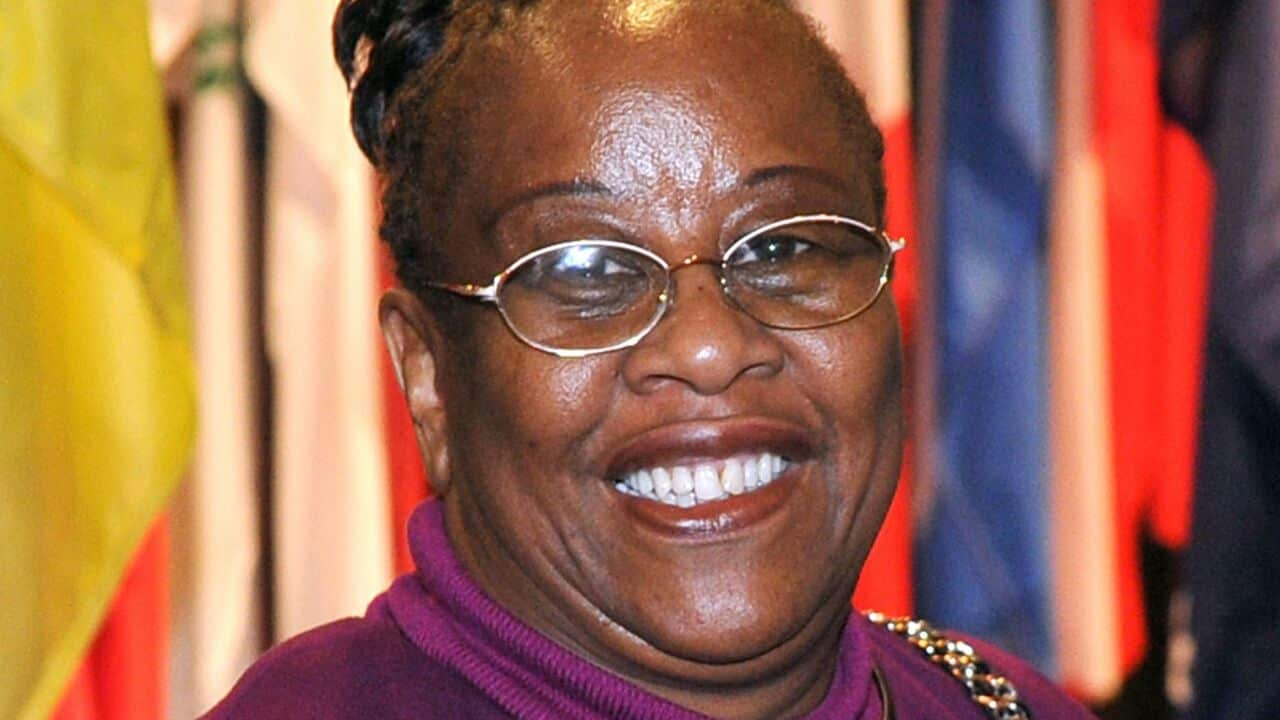(Transcript from World News Australia Radio)
Zimbabwe's ambassador to Australia has sparked controversy over her decision to seek asylum.
Jacqueline Zwambila is applying for a protection visa, after describing the government of President Robert Mugabe as illegitimate.
The Mugabe government has dismissed her claim, but Zimbabwe's main opposition party says it supports her concerns about returning home.
Zara Zaher has the details.
(Click on audio tab above to listen to this item)
Jacqueline Zwambila made the request for asylum in Australia just as her posting as Zimbabwe's ambassador was drawing to a end.
Ms Zwambila says she fears for her safety in Zimbabwe after openly criticising the legitimacy of the July election result giving victory to the Zanu-PF party of President Robert Mugabe.
"Once the elections of 31 July were stolen by the current government, which is illegitimate, I knew that this is the end of the line for a lot of things."
Ms Zwambila was appointed in 2009 under a power-sharing agreement between President Mugabe and Morgan Tsvangirai, the leader of the opposition Movement for Democratic Change.
Home Affairs Minister Kembo Mohadi says all the leaders of the MDC are still living in Zimbabwe, so Ms Zwambila's remarks are surprising.
Ms Zwambila's immigration agent, Marion Le denies her client spoke publicly about her case in a bid to improve her chances of gaining a protection visa in Australia.
"This was not an attempt by her to enhance her claim. It was a statement of fact - I'm not going back because I fear that I will be killed and there is enough evidence to substantiate that claim. And she's speaking out not just for herself. I think what she's done here is bring to the attention of the world the fact that Mugabe's government is in power. She disputes the voting that brought him to that position of power again and she is really concerned at the base not only for herself but of course for the people of Zimbabwe."
Ms Le says Ms Zwambila's case will be treated like any standard asylum claim.
And speaking to the ABC, former Foreign Affairs Minister Alexander Downer agrees Ms Zwambila's case should follow regular procedures.
"I think it might be a bit unfair on all other asylum seekers for her to be treated somewhat differently. I mean she's entitled to make a claim, as apparently she has done, and make a claim based on genuine fear of persecution or worse, if she were to return to her home, to Zimbabwe. But just because she was an ambassador and of course she's not now, wouldn't necessarily give her any special privileges."
Ms Zwambila's immigration agent, Marion Le, points out that the Australian government questioned the results of Zimbabwe's election in July.
And she says her client's case indicates the seriousness of the political situation in Zimbabwe.
"She has every right I think to speak out about why she has had to leave her country. the country for which she has represented I think with a great deal of flair and she's certainly from my understanding been able to assist the Zimbabwean people by getting a lot more aid sent to Zimbabwe in the time that she's been here. So she has been a very, very able representative for her country and in the normal string of events, you would have expected that she would have gone on to acquire further diplomatic posts. I know that it was not something a decision that was easy for her but it was one that the government of Zimbabwe itself left her with no choice but to seek asylum and it came to the point where she if she did go back she would be arrested the minute she stepped off the plane."
In a statement, the Australian government says it won't provide commentary on individual asylum cases, which are assessed on their merits.

